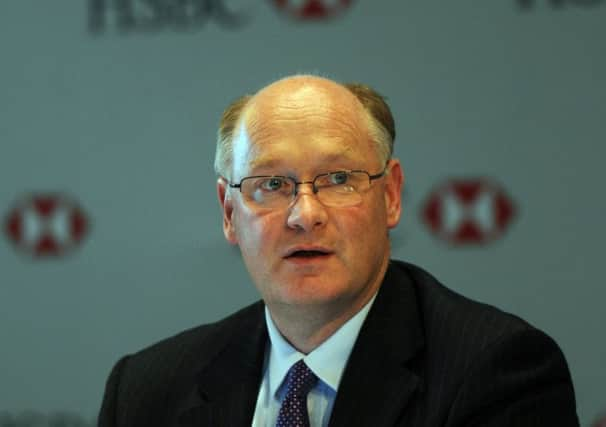HSBC chair backs ‘early’ warnings on wrongdoing


Douglas Flint’s intervention yesterday came as the Chartered Institute for Securities & Investment (CISI), the City’s leading ethics body, launched a “Speak Up” drive urging financial services staff to report “embryonic” violations of company policy.
Simon Culhane, chief executive of CISI, said at the launch at Mansion House that employees acting on a “moral incentive” to report violations of company policy to bosses was preferable to the US-style approach of later-stage whistle-blowing, sometimes in return for heavy personal paydays.
Advertisement
Hide AdAdvertisement
Hide Ad“Why did nobody talk about PPI [payment protection insurance mis-selling] or Libor [rate manipulation]? Why did no-one say anything about Royal Bank of Scotland at the time,” Culhane said.
Flint, a personal friend of CISI chairman, Alan Yarrow, told the audience that instilling a culture in which financial services staff felt comfortable about alerting senior management to potential wrongdoing early was “hugely important”.
He admitted that in banking after each case of bad behaviour there was a reflection at the highest levels of “how could no one see it coming?”
He said in the banking industry “business was not always conducted in the way it should have been or the way we thought it was”, and that staff who told their concerns about the behaviour of colleagues should be “celebrated… even if they are sometimes wrong”.
Flint, whose own bank was fined nearly $2 billion (£1.2bn) by American authorities in 2012 for Mexican criminal money-laundering, said the “speak up” campaign was preferable to later-stage whistle-blowing which had “much narrower and more sinister connotations in many people’s minds”.
The HSBC chairman said it was better for staff to inform on potentially wrong behaviour early rather than whistle-blowing as a “last resort event by which time behaviour has descended to the toxic”.
He said earlier communication of concerns to senior management would show employees had a sense of duty and pride in their organisations.
Talking at the sidelines of the meeting later, Flint said: “The most important thing is people get an environment where they are confident they can speak up without fear of reprisal. It should not be seen as out of the ordinary.”
Advertisement
Hide AdAdvertisement
Hide AdCulhane told members the US Securities & Exchange Commission had paid out $150 million to whistle-blowers “making some individuals multi-millionaires as a result of it”.
He said the CISI was against payments for whistle-blowers, but said the “Speak Up” campaign was urging the setting up of a “financial hardship fund” for UK financial services workers disadvantaged through bringing wrongdoing to the notices of their bosses, perhaps through losing their jobs.